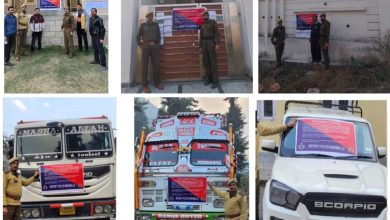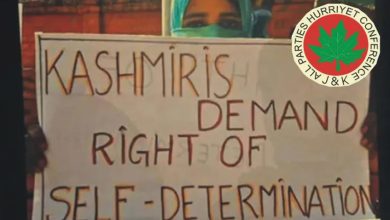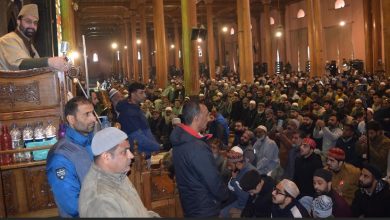Indian occupation jeopardizes safety, fundamental rights of Kashmiri daughters
InternationalDaughtersDay
 Srinagar: The ongoing brutal occupation of Jammu and Kashmir by India has profoundly impacted Kashmiri women, including mothers, daughters, sisters and wives, who face an array of challenges that jeopardize their safety and fundamental rights.
Srinagar: The ongoing brutal occupation of Jammu and Kashmir by India has profoundly impacted Kashmiri women, including mothers, daughters, sisters and wives, who face an array of challenges that jeopardize their safety and fundamental rights.
According to Kashmir Media Service, in conflict-ridden region of occupied Jammu and Kashmir, women endure various forms of violence, including intimidation, sexual harassment, and psychological trauma. Despite their resilience, these women find themselves trapped in a cycle of violence and oppression. As the international community often turns a blind eye, the suffering of these women continues unabated.
Thousands of Kashmiri women have suffered at the hands of Indian troops, with a staggering number of cases of abuse and violence reported since January 1989. As highlighted in a report on International Daughters Day, thousands of women are among 96,347 people of IIOJK have been martyred by Indian troops since January 1989 till date. Since 2001 alone, at least 682 women have lost their lives due to military actions in the occupied territory.
The report revealed that ongoing state terrorism has left 22,977 women widowed and that 11,265 women have been molested or disgraced. Atrocities like the Kunanposhpora mass rape and the double murder of Aasiya Jan and her sister-in-law Neelofar, serve as glaring examples of the brutalities inflicted on women in IIOJK. Additionally, many women have lost family members to custodial disappearances, compounding their suffering. As per the Association of Parents of Disappeared Persons, more than 8,000 Kashmiris went missing in custody during the past 35 years.
The use of pellet guns by Indian forces’ personnel has resulted in severe injuries to over a hundred women, including children. For instance, 19-month-old Heeba Jan, 2-year-old Nusrat Jan, Ulfat Hameed (17), Insha Mushtaq, Ifrah Shakoor (17), Shakeela Bano, Tammana (11), Shabroza Mir (16), Shakeela Begum (35) and Rafia Bano (31) lost their eyesight due to pellet injuries. Moreover, numerous girls are among thousands injured by the pellets fired by Indian troops and police personnel.
Kashmiri women not only grapple with the immediate threats of violence but also face long-term consequences on their physical and mental well-being. The psychological toll of living in an environment marked by fear and uncertainty has led to many women suffering from anxiety, depression, and other mental health issues. Unfortunately, societal stigma surrounding mental health often prevents them from seeking the support they need.
Maroofa Meraj, a Kashmiri woman whose husband is an illegally detained Hurriyat leader, shared her experience: “I am suffering from depression, and so are my daughters who have not seen their father in a long time.” Her story reflects the plight of countless mothers, wives, and daughters waiting for the return of their loved ones imprisoned in various jails for last several years.
Kashmiri women face significant barriers to their basic rights, as outlined in the Universal Declaration of Human Rights and CEDAW (The Convention on the Elimination of All Forms of Discrimination Against Women). Many Kashmiri women, including activists and leaders, are detained for advocating their rights and the right to self-determination. The unlawful detention of over two dozen women, including Hurriyat leaders, underscores the systemic oppression they face.
The plight of Kashmiri women is a pressing human rights issue that demands immediate action. The report urged international justice instruments, such as the United Nations and human rights watchdogs, to recognize and address the suffering of these women. It emphasized that Kashmiri women are playing a crucial role in the ongoing struggle for freedom and must be supported in their quest for justice and equality.
As the situation in occupied Jammu and Kashmir deteriorates, it is imperative to amplify the voices of Kashmiri women and advocate for their rights. The international community must take cognizance of their struggles and work towards ensuring their safety, dignity, and fundamental rights. Only through concerted efforts can we hope to address the injustices faced by Kashmiri daughters and empower them to shape their future.








